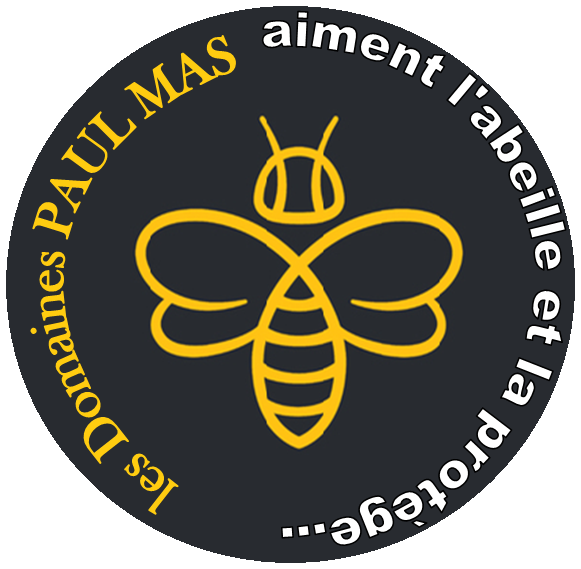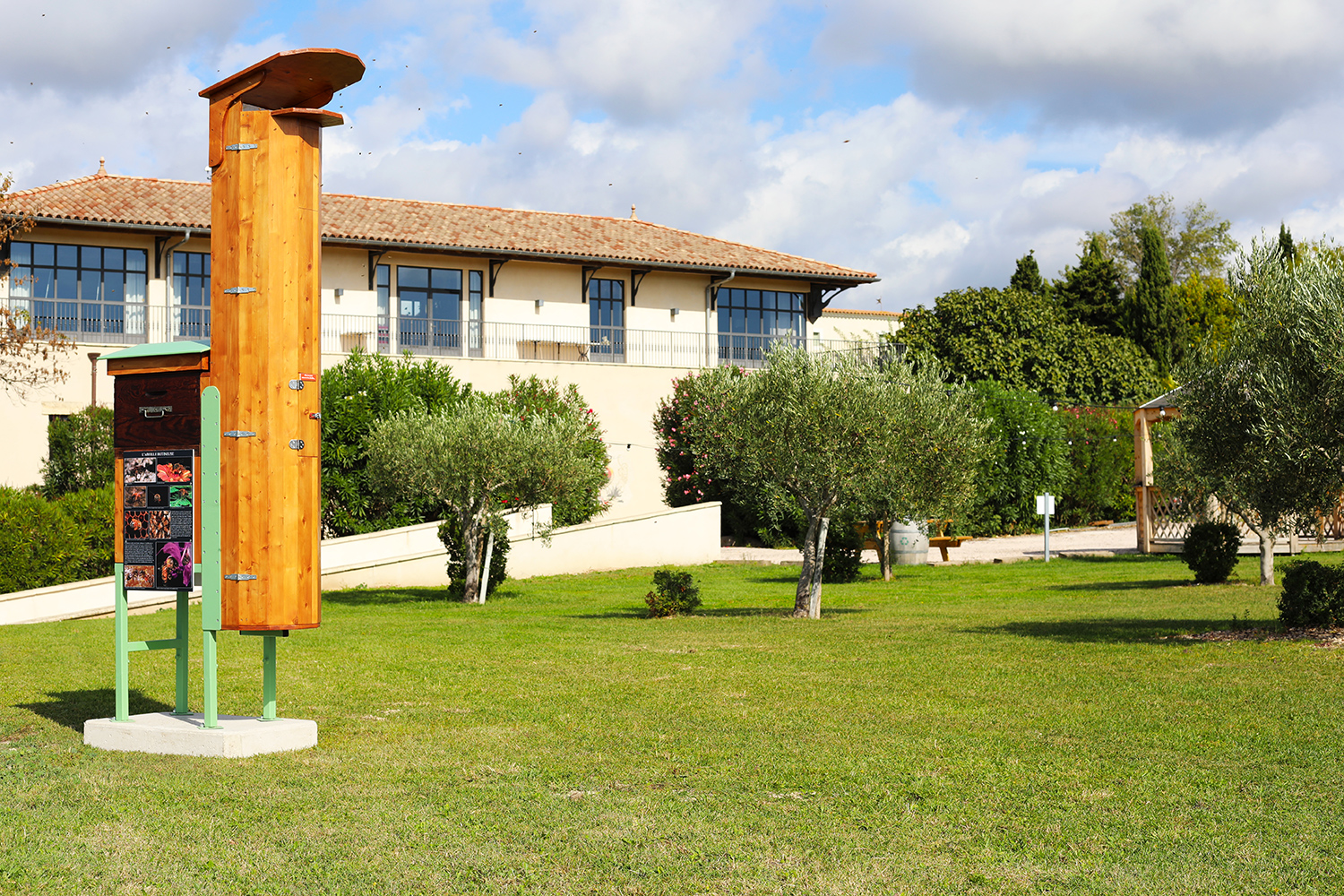
Bees in the vineyard
As pollinating insects, bees are responsible for 80% of the pollination of the vegetal world. They play a very important role in the reproduction of the flora and ensure the biodiversity of the vineyard.
Domaines Paul Mas welcomes new bee hives system. The little queens of biodiversity have taken up residence in our vineyards on 4 different sites, and we are hoping to expand in the near future.
- One on the Belluguette plot
- One on the Astelia plot
- One in the olive grove in front of the Côté Mas boutique
- One in the organic vegetable garden of the Chefs of the Gastronomic Restaurant Côté Mas Beyond these new generation of hives, we still host 250 hives on the Peyra Plantade plot.
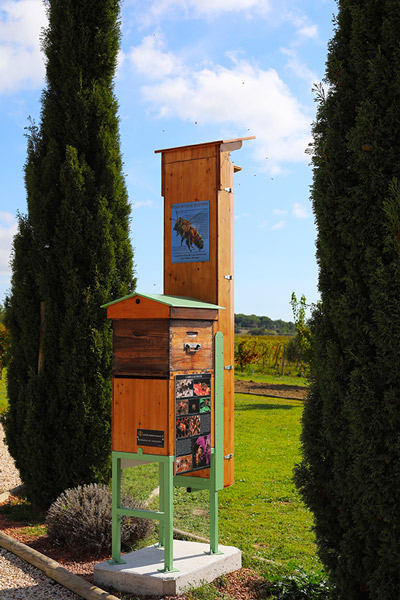
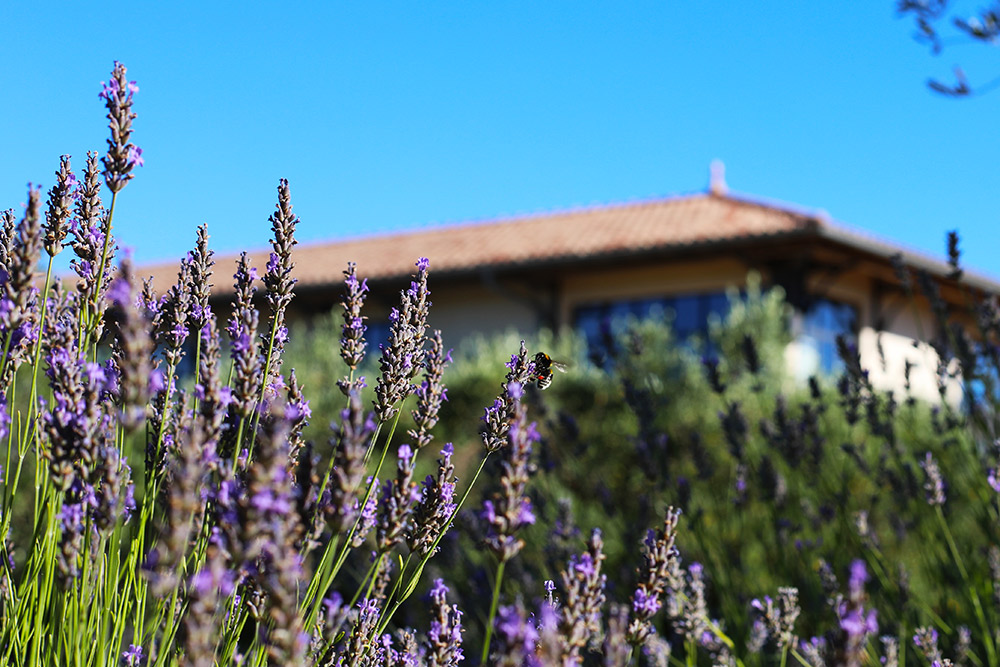
Beekeeping at the service of the organic vegetable garden of the chefs of the gastronomic restaurant Côté Mas
In a graceful ballet, attracted by the sweet nectar, the bees move from plant to plant, from flower to flower, foraging and pollinating. They rub against the stamens and cover themselves with pollen, then onto the next flower, they leave a few seeds fertilizing the flowers with mature female organs. So, strawberries, apple trees, pear trees, tomatoes, cucurbits… multiply and thrive in the vegetable garden. This beehive will reinforce the pollinating already present insects to increase the probability of fertilization of the flowers.
In a few months, we can see our Chefs getting inspired by a few new recipes with honey!
Beekeeping at the service our olive trees
Increasing the number of bees in our olive groves increases their pollinating action, increasing the probability that more flowers will bear fruit.
Beekeeping at the service our vineyard
Although the vine is an anemogamous plant, i.e. the wind alone is sufficient for its reproduction, and it does not need the help of pollinators, the impact of bees in viticulture is not trivial.
The presence of bees in the middle of the vineyard contributes to having a varied biodiversity within the ecosystem. Through their pollination action, they will promote the development of the flora and enrich the viticultural area with diversity. This natural development of the flora will promote the biological life of the soil and its activity bringing nutrients and organic matter and to oxygenate the soil.
It is all possible thanks to our respect for the environment!
Eager to preserve all the auxiliary insects that contribute to the balance of the ecosystem, Jean-Claude Mas has chosen to farm in respects to the environment, based on the principles of biodynamics, which begin with the removal of insecticides and fungicides most harmful to bees. It offers them an environment conducive to their development.
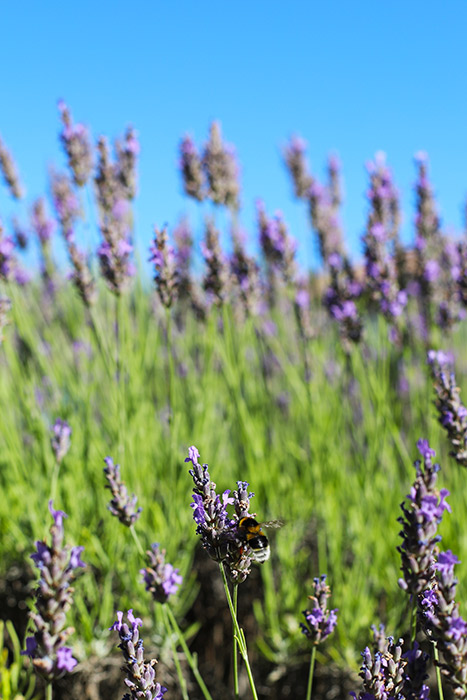
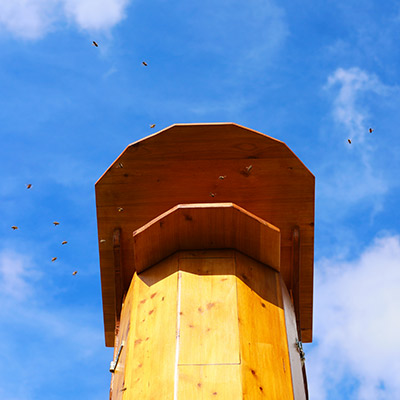
A beehive chimney??!
The chimney requires its occupants to enter and leave the hive at 2.50 m from the ground. Thus, walkers and workers do not disturb the bees and vice versa. The windows allow us to observe the colony of bees at work and make all our visitors aware of their importance.
Bees are essential
A very large part of our food depends on the pollination of bees. If they were to disappear, the consequences on food production would be disastrous! Unfortunatly, they are experiencing an abnormal high mortality rate of 30% per year (according to the UNAF). We need to preserve them!
Thanks to mielleriedessources for installing the hives!
